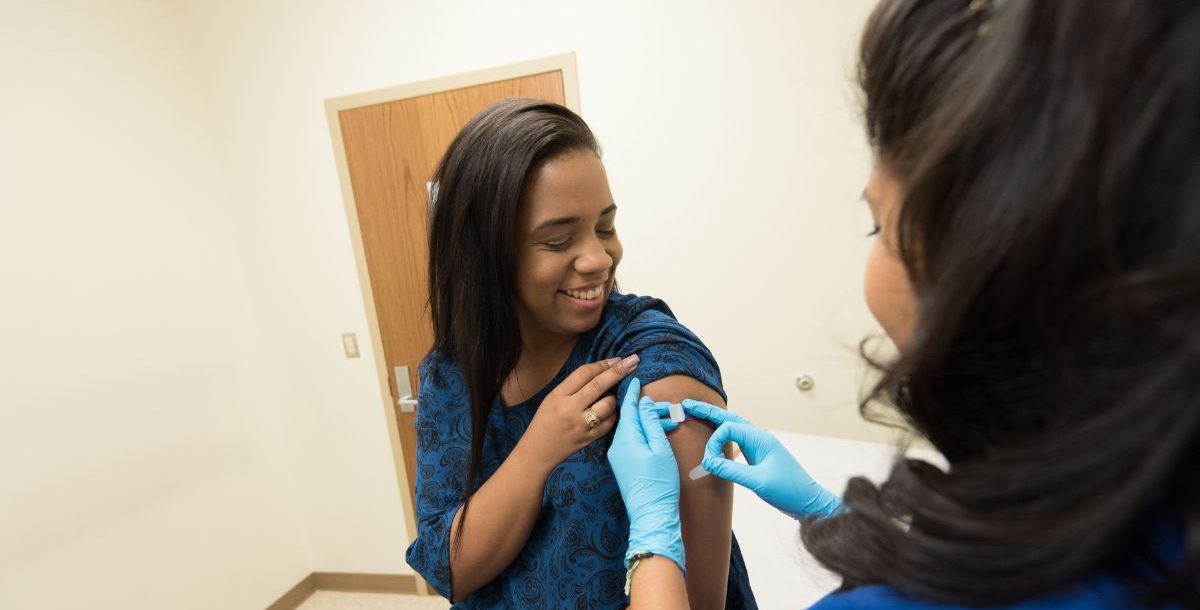As children begin heading back to school, parents have a lot to keep track of. From school supply lists to welcome back ice cream socials, the list goes on and on. Depending on the school district, a list of immunizations may be required. One of those immunizations schools often require – or highly encourage – children 11 and older to get is a meningitis vaccine.
What is the meningitis vaccine?
The meningitis vaccine is designed to protect people from contracting bacterial meningococcal disease, which can transfer easily through breathing in saliva or spit droplets in the air.
These bacteria can eventually cause bacterial meningitis – a disease that causes membranes in the brain and spine to become inflamed and is possibly life-threatening if it overwhelms the immune system.
Do I really need the meningitis vaccine?
According the Centers for Disease Control and Prevention (CDC), it’s recommended that all preteens, teens and young adults get the meningococcal vaccination.
It also recommends that children and adults get the vaccine in certain situations. You should talk to your doctor and pediatrician to see if the vaccine is right for you and your situation.
Why do people get the meningitis vaccine?
Meningitis is a serious infection that can damage the brain and spinal cord. The vaccine protects your child from those infections. Because the bacteria are transmitted through respiratory droplets in the air, students are at a particularly increased risk for contracting the disease.
How common is meningitis?
Because of vaccination requirements for school-aged children, meningitis cases are slowly going down in the United States. Still, around 3,000 people a year (or about one in 100,000) contract the disease – it’s most common in children younger than one year of age, which is followed by a peak in adolescence.
Cases of meningitis in children, teens and the elderly usually are at their highest in the winter. Symptoms of this disease include:
- Sudden high fever
- Stiff neck
- Severe headache
- Confusion or trouble concentrating
- Vomiting or nausea
- Sensitivity to light
- Lack of appetite or thirst
- Sleepiness
- Seizures
Newborns and infants with meningitis may also develop a bulge on the soft spot of their head and cry constantly.
What are the side effects of the meningitis vaccine?
There are two kinds of vaccines available for meningitis – the meningococcal conjugate, or MenACWY, vaccine, and the Serogroup B meningococcal, or MenB, vaccine. Each type helps protect your child against different strains of the disease.
Side effects from the vaccine are rare – only about half the people who get the vaccine mention the side effects – and are usually mild. They can include:
- Redness where the shot was given
- Soreness where the shot was given
- Muscle pain
- Headache
- Feeling tired
Can adults get meningitis?
Although it’s much more common in children and teens, adults can contract meningitis.
When to talk to your provider
You should have a conversation with your doctor and pediatrician if you have concerns about any required vaccines. The meningitis vaccine is safe and effective in preventing a very serious disease. However, every person and situation is different.
Learn about the primary care services we provide at Mercy Health.






